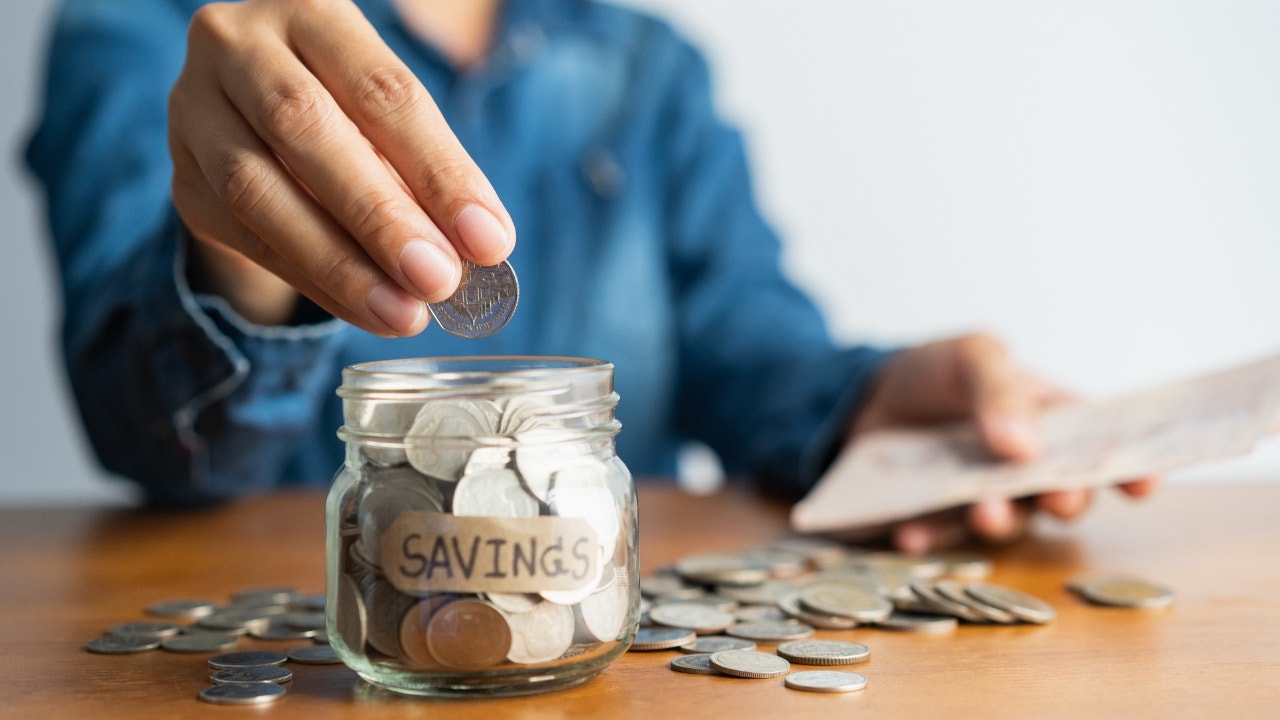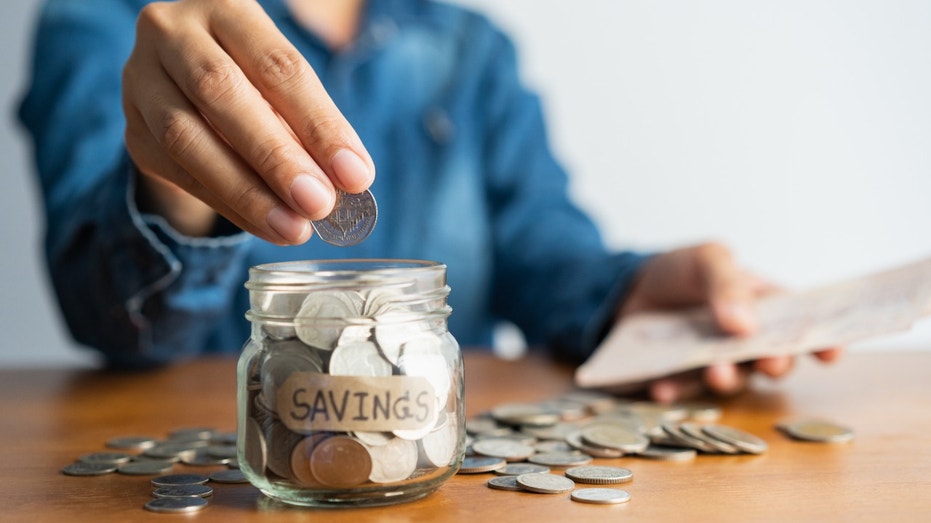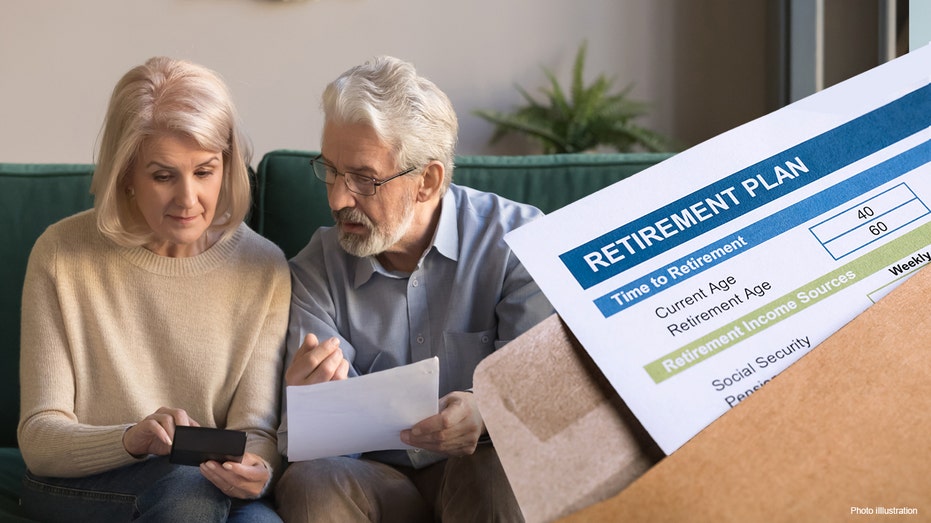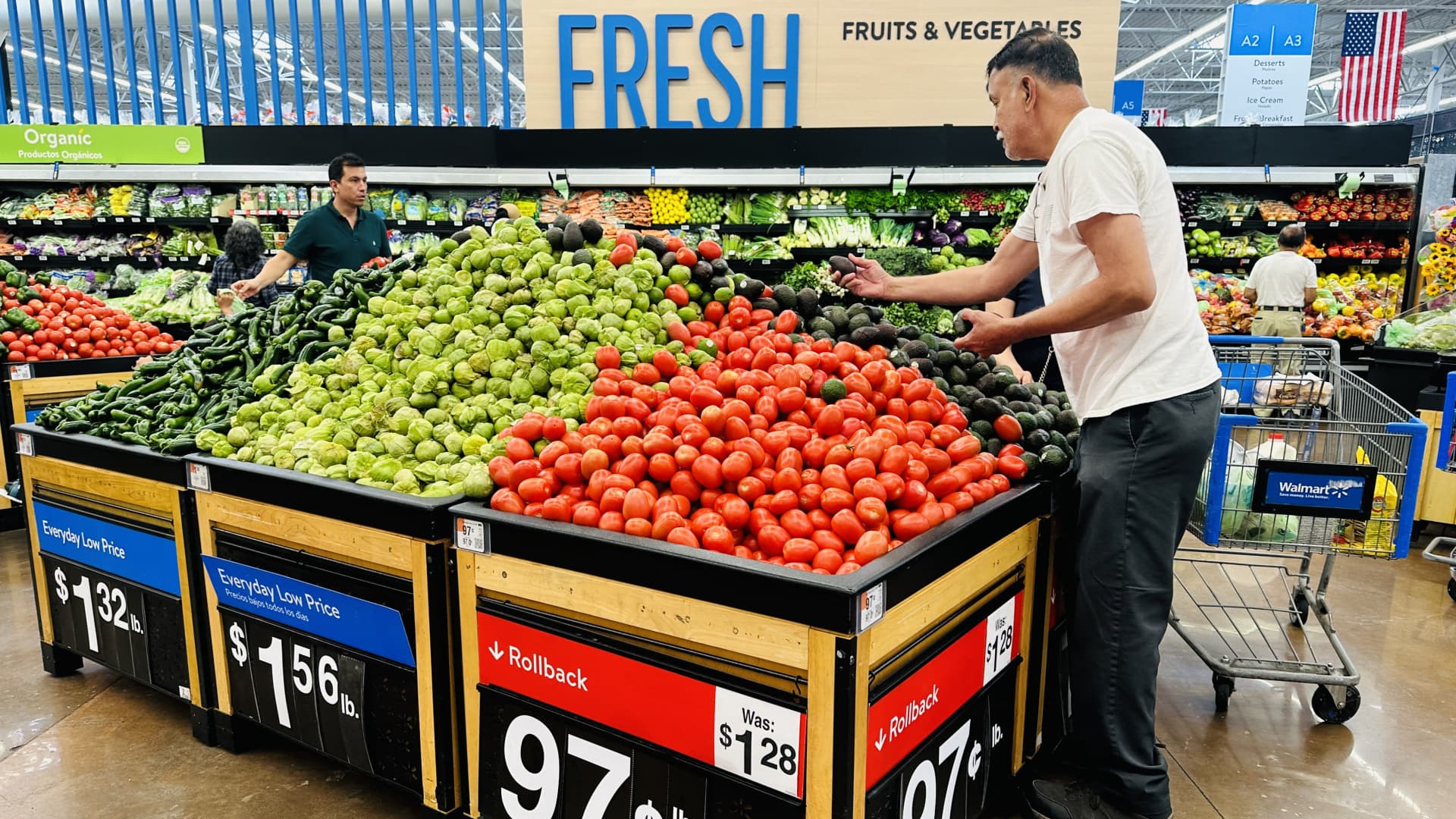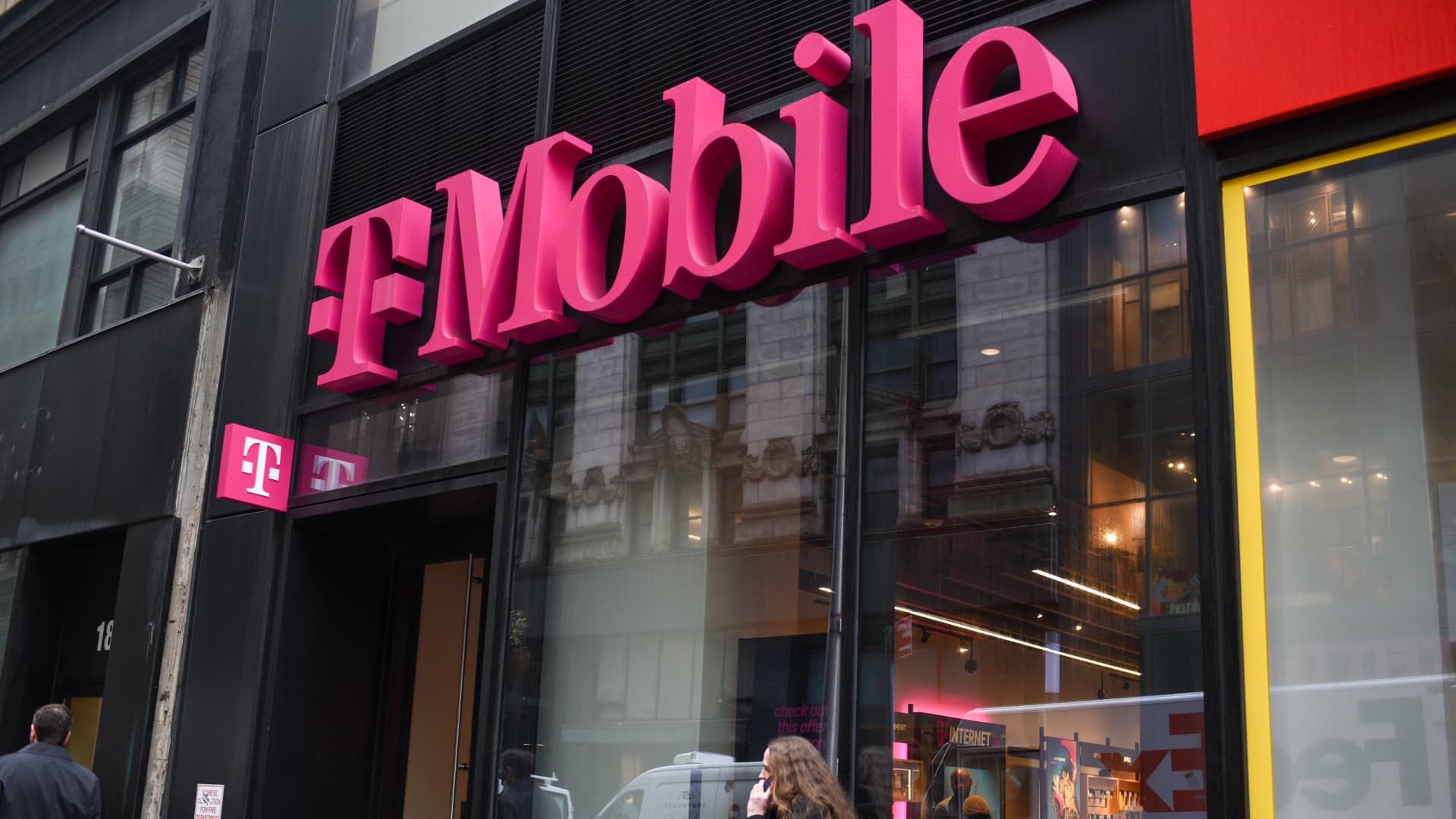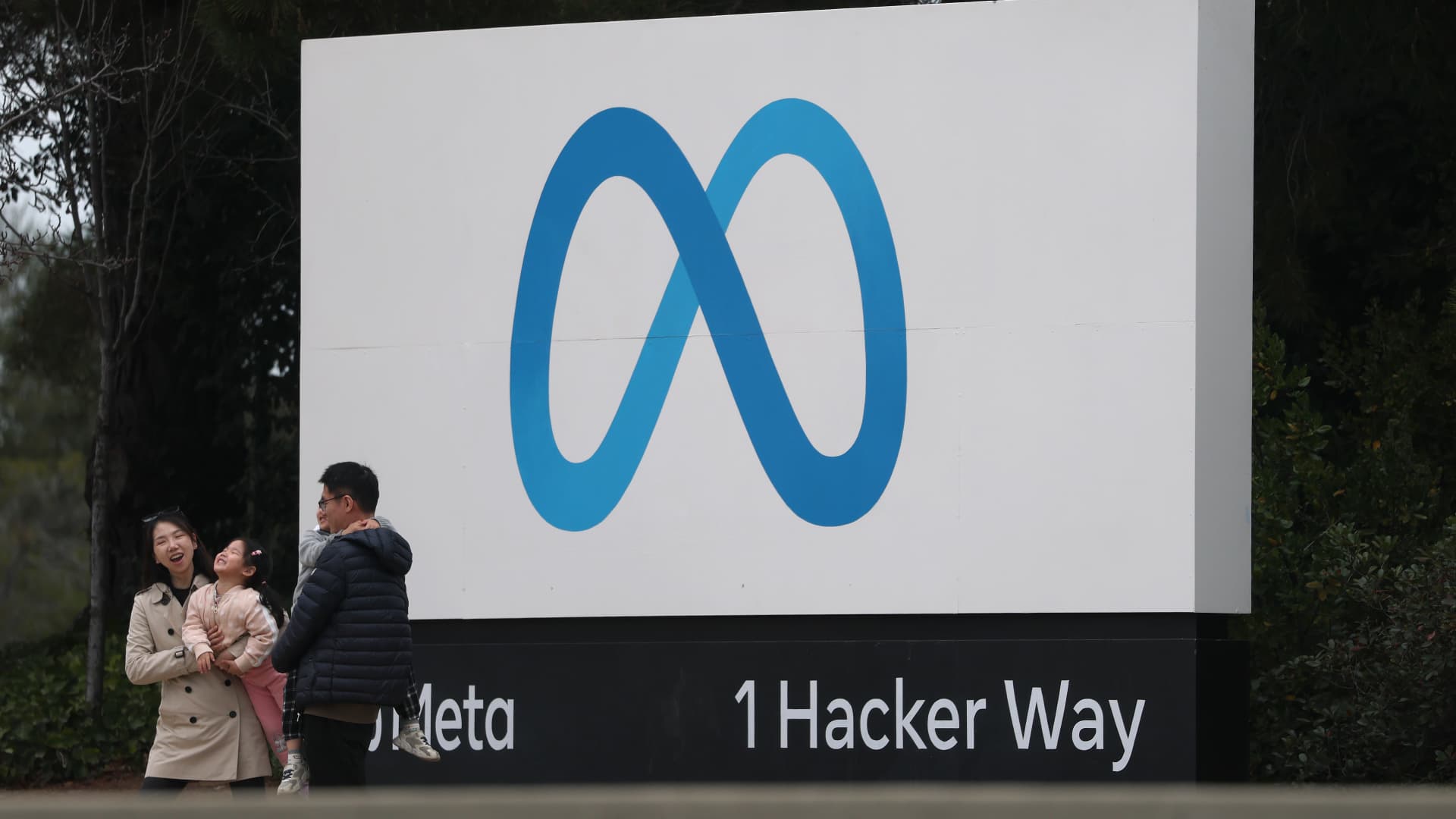Affirm co-founder and CEO Max Levchin says the company is in ‘really good shape’ on ‘The Claman Countdown.’
Setting aside funds for retirement is important – and 22% of U.S. adults reported not starting the practice early enough brought them the most financial regret.
Bankrate reported that to be the case as part of a recently-released survey that YouGov conducted July 16-18 on its behalf using a non-probability based sample of 2,355 American adults that more broadly found 77% hold some type of financial regret.
The 22% figure made remorse about not getting an early enough start on stashing away funds for retirement the financial regret that weighed most heavily on Americans, per the survey.
THE NUMBER OF 401(K) MILLIONAIRES HIT A NEW RECORD HIGH
Bankrate said that particular issue has emerged as the biggest financial regret “in 6 of the 7 years of polling.”
A person puts money into a retirement savings jar. (iStock / iStock)
Earlier this year, the amount of money that Americans think they must have in order to “comfortably” retire became $1.46 million, according to a Northwestern Mutual report.
The April report found U.S. adults have set aside $88,400 on average so far for their Golden Years. That meant they had an average of $1.37 million left to save to hit the “magic” retirement number.
THE ‘MAGIC NUMBER’ TO RETIRE COMFORTABLY HITS A NEW ALL-TIME HIGH
Meanwhile, Bankrate said that among top financial regrets, not building up a sufficient emergency fund and racking up too much credit card debt were also identified as major ones by double-digit percentages of American adults, though not as much as retirement savings.
Eighteen percent called the former their “biggest,” while a somewhat smaller share, 14%, said the latter, the survey found.
Serious mature couple calculating bills to pay, checking domestic finances, middle aged family managing, planning budget, expenses, grey haired man and woman reading bank loan documents at home (Istock / iStock)
Things like amassing too much student loan debt, not saving enough for a child’s education and purchasing a house beyond one’s means also financially haunted 5%, 4% and 2% of American adults, respectively. In the case of another 12% with financial regrets, “something else” made them feel the worst, according to Bankrate.
Slightly under two-thirds of Americans that hold financial regrets have been working to improve upon the situation that’s making them feel that way, reporting either “some” or “significant” progress in the past year, the survey found.
On the other hand, 40% have made no headway.
Respondents identified various things as hindering efforts in the past 12 months to work on their financial regrets.
For 45% of financially regretful Americans, inflation or high prices hurt their progress the most, according to Bankrate. That was 27 percentage-points higher than employment situations pointed to by 18% of people. High interest rates, family dynamics and other factors also posed challenges, the survey found.
Young woman with braided hair sitting by the table, looking on her smart phone. Paying bills on the phone, checking her finance on the phone app. Millenial generation uses new and improved ways of dealnig with money. Everything can be done over the p (iStock / iStock)
“Don’t expect an overnight fix,” Bankrate Chief Financial Analyst Greg McBride said in a statement of high prices. “Inflation is moderating, but that doesn’t mean prices are coming down, just that they’re not going up as fast.”
INFLATION RISES 2.9% IN JULY, LESS THAN EXPECTED
In July, the most recent month with available data, inflation measured by the Consumer Price Index increased 0.2% month-over-month and 2.9% year-over-year.
And while most Americans harbor financial regrets, the Bankrate survey also revealed how many don’t hold any – 18%.
Megan Henney contributed to this report.

 Economics1 week ago
Economics1 week ago
 Economics1 week ago
Economics1 week ago
 Personal Finance1 week ago
Personal Finance1 week ago
 Blog Post7 days ago
Blog Post7 days ago
 Personal Finance1 week ago
Personal Finance1 week ago
 Economics1 week ago
Economics1 week ago
 Economics6 days ago
Economics6 days ago
 Economics7 days ago
Economics7 days ago
